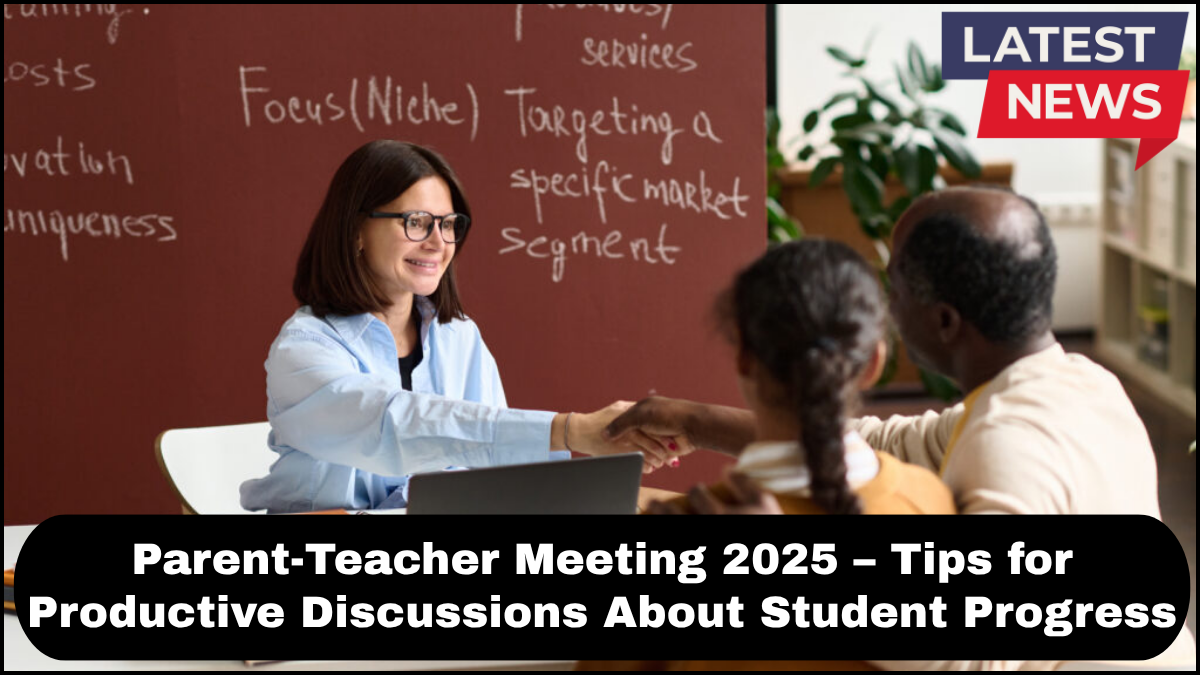Parent-teacher meetings are a vital part of a student’s academic journey. These interactions offer an opportunity to align goals, identify challenges, and foster collaboration between educators and families. As we step into 2025, the dynamics of education continue to evolve, making it even more important to make the most of these meetings. Here are actionable parent-teacher meeting tips that can help create focused and productive student progress discussions.

Prepare Ahead with Relevant Information
Before the meeting, both parents and teachers should gather key information. Parents can jot down questions or concerns about academic performance, social behavior, or classroom engagement. Teachers should have up-to-date records on grades, test results, attendance, participation, and any noticeable patterns in a student’s behavior.
Preparation ensures that the meeting stays on topic and that both parties are ready to have a meaningful conversation about the student’s growth and areas for improvement.
Example: If a student has shown inconsistent homework submission, teachers should bring examples and provide context. This helps parents understand the issue and consider how to support their child at home.
Focus on Collaboration, Not Criticism
Effective student progress discussions are rooted in mutual respect and shared goals. The purpose of the meeting is not to criticize but to collaborate. Teachers should speak in a constructive tone, focusing on how parents and educators can work together to support the student.
For instance, instead of saying, “Your child is disruptive in class,” a better approach might be, “Your child seems very energetic and talkative—let’s explore ways to channel that positively during lessons.”
Parents should also feel comfortable sharing insights about what might be affecting their child’s performance—such as a recent move, health issues, or emotional stress. These details can help teachers better understand the full picture.
Use Clear, Jargon-Free Language
Educators often use academic terms or abbreviations that may not be familiar to parents. During parent-teacher meetings, it’s essential to communicate in straightforward language. Replace technical terms with clear explanations, and ensure the parents understand what the feedback means in practical terms.
Instead of: “Your child’s formative assessments indicate a deficiency in comprehension benchmarks.”
Say: “Your child is having difficulty understanding what they read, especially in subjects like science and social studies.”
This approach avoids confusion and keeps the discussion solution-focused.
Set Specific, Achievable Goals
One of the best parent-teacher meeting tips is to end the conversation with a plan. This means setting short-term, measurable goals for the student.
Whether it’s improving math skills, participating more in class, or turning in homework on time, concrete targets make progress easier to track. Teachers can also suggest strategies for home support, such as reading together for 20 minutes a day or using learning apps.
Tip: Document these goals in a shared platform or send a follow-up email so everyone remains aligned.
Be Open to Feedback and Follow-Up
Both parents and teachers should treat the meeting as an ongoing dialogue, not a one-off event. If concerns are raised, agree on how and when to follow up. This might involve a check-in email after a month or a second meeting later in the term.
Also, parents should not hesitate to ask questions or seek clarification. Engaged and informed parents are key to reinforcing academic success at home.
Embrace Technology Wisely
In 2025, many schools use digital platforms for grade tracking, communication, and virtual meetings. Make sure you’re familiar with the tools being used and how to access student information.
Pro Tip: If the meeting is virtual, ensure a stable internet connection, a quiet environment, and access to any shared documents or platforms the teacher might use.
FAQs
Q1: How long should a parent-teacher meeting last?
Most meetings range from 15 to 30 minutes. This allows enough time to review academic progress, address concerns, and set goals without overwhelming either party.
Q2: What questions should I ask during the meeting?
Ask about your child’s strengths, areas needing improvement, social interactions, classroom behavior, and how you can help at home. For example: “What can I do to support their reading development?”
Q3: What if I disagree with something the teacher says?
Approach the disagreement with openness. Ask for specific examples and share your perspective. The goal is to find a balanced approach that supports the student.
Q4: Can students attend parent-teacher meetings?
In some cases, yes—especially for older students. Involving them in student progress discussions can increase accountability and motivation. However, it depends on the school’s policy and the nature of the issues being discussed.
Q5: How can I follow up after the meeting?
Send a thank-you message and confirm any agreed-upon actions or goals. Continue to communicate regularly through the school’s preferred channels.
click here to learn more